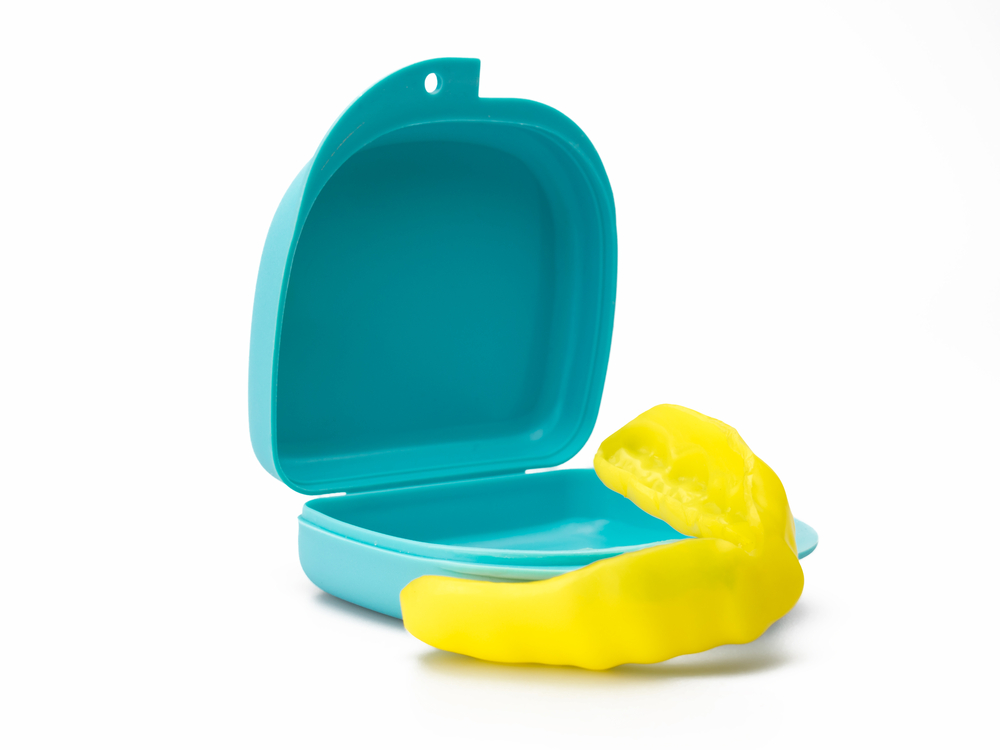If you or your partner are among the 40 percent of adult males and 24 percent of adult females who snore, getting some relief may be a concern. Many products claim to offer solutions to snoring, from nasal strips that hold your airway open to sleep orthotics that prop your jaw open. But while you may think you’re doing yourself and your partner a favor by trying one of these products, you could actually be doing more harm than good.
That’s because, according to dentist Dr. Alexandra George, at least one of those products – over-the-counter mouth guards for snoring – could be causing or worsening an entirely new problem: temporomandibular joint dysfunction.
Temporomandibular joint dysfunction, or TMJ dysfunction as it is sometimes known, is a condition that occurs when the temporomandibular joint of the jaw becomes misaligned. Temporomandibular joint dysfunction can cause your jaw to lock and stiffen, your ears to ring, and your head, neck and back to ache. It can be caused by everything from genetics to jaw injury to, yes, even over-the-counter oral appliances like snoring mouth guards.
“What happens is the jaw becomes misaligned from its optimal position to compensate for the snoring,” says George. “And this causes the temporomandibular joint dysfunction.”
George says other types of over-the-counter oral appliances can have the same effect, but sleep appliances are typically worn longer and thus have more time to cause damage to the jaw.
“Then you have to look at neuromuscular orthodontics to correct the problem caused by the mouth guard,” says George.
Neuromuscular orthodontics reposition the jaw, realigning the temporomandibular joint so it fits together properly and eliminates the associated pain.
Treatment times for TMJ disorder vary depending on the individual patient, but, according to George, there are many things patients can do in the meantime during their treatment to help ease some of the pain.
“We recommend hot compresses, physical therapy and eliminating certain foods from your diet that may make temporomandibular joint dysfunction symptoms worse,” George says.
Those foods include very crunchy foods (think pretzels, chips and some raw vegetables) and very chewy foods such as gum, gummies, taffy and other chewy sweets.
George also says if you have any behaviors like teeth grinding or jaw clenching, you should speak to your dentist about treatment of those conditions, too.
“Grinding the teeth can not only worsen your TMJ dysfunction symptoms, but it can also crack and break your teeth. It can also limit filling life,” she says. “Jaw clenching can add to the stiffness of TMJ dysfunction.”
Those bite guards that you can get in the toothpaste aisle to help with grinding teeth can worsen TMJ dysfunction, too, says George.
“Basically, you should speak to your dentist before trying any type of mouth guard, but professional mouth guards available through your dentist are the safest bet,” she says. “We can customize them to your individual mouth in a way that won’t cause or worsen dental problems.”


